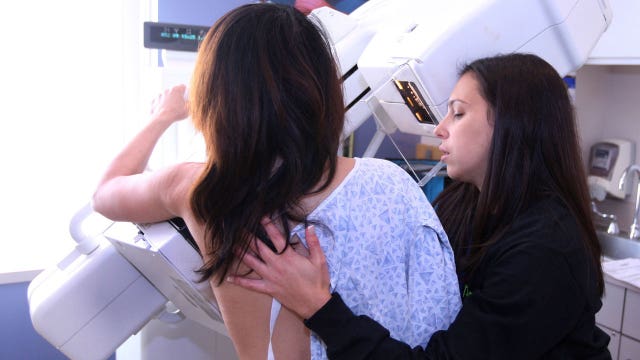Mammogram guidelines changed by American Cancer Society
Cancer screening recommendations updated
This week the American Cancer Society (ACS) turned back the clock on the timing of detection of breast cancer when it announced its new screening guidelines that increase the age for annual mammograms for women of average risk from 40 to 45 years of age and biennial screening for all women between the ages of 55 to 74. ACS even went on to state that doctors should no longer perform clinical breast exams.
The trouble with these new recommendations is that many women do not know if they are at “average” risk because they are not informed about their family history. This creates a false sense of security and puts many at risk by telling women they have an additional 5 years to be screened.
The American Cancer Society’s recommendation is also at odds with other experts in the field such as The American College of Obstetricians and Gynecologists for example who say 40 is the age for women to have a mammogram.
Breast Cancer is very personal for my family and me. I write this as my own personal view and not as a representative of Susan G. Komen.
We should be encouraging detection not discouraging it especially when the incidents of breast cancer are still at alarming numbers.
My sister was Susan G. Komen the namesake of the international breast cancer charity I founded in her name.
Susan died of breast cancer at the age of 36 and my own breast cancer was detected in part by screening and breast examination at the age of 37.
I was fortunate that I knew my family history and I had access to the best medical care. My awareness came as a direct result of my knowledge of my sister’s cancer and treatment, which prompted me to get checked.
When my sister was diagnosed and was dying of breast cancer I made a promise to her that I would not only work to find a cure for breast cancer but I would make sure women of all ages, incomes, races and social backgrounds would be educated and motivated to seek accessible detection, prevention, treatment and cure.
As a result of the work of Susan G. Komen, millions of women from all over the world have been educated and have been screened, treated and cured. It took years to get to the point where women understood the need for proper screening and when and how it should be conducted.
The worst thing to do now is to send mixed messages or to confuse women as to when and how detection of Breast Cancer should be done.
The longer women take to be diagnosed with breast cancer the more costly and painful the treatments and options will be. We should be encouraging detection not discouraging it especially when the incidents of breast cancer are still at alarming numbers.
The American Cancer Society’s recommendations will not only influence America’s detection protocols but it could also be seen internationally as a “gold standard” of care.
The facts are that the poor and uneducated are the most at risk and these new standards can thwart their ability to be screened. These new guidelines may become standards to deny screenings and as a result many may suffer.
With the high costs of health care these new directives by the American Cancer Society will be viewed as an attempt to cut costs under the guise of best practices and its effect may put more lives at risk.
I urge all women to check their family history and to get a mammogram commensurate with that history.
Women ages 20-39 should have a clinical breast exam at least every 3 years and women 40 years of age and older should have a clinical breast exam every year.
Regardless, all women should be made comfortable to know the changes in their own bodies and to be able to seek medical attention as needed.









































